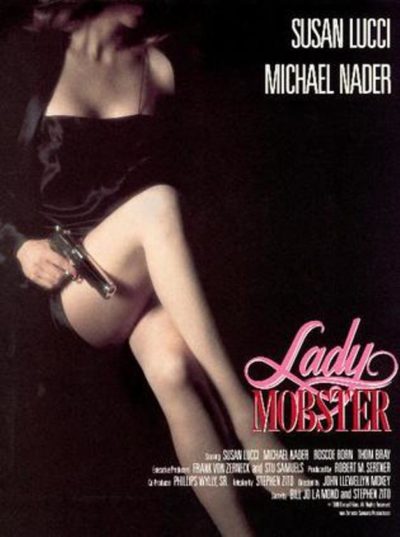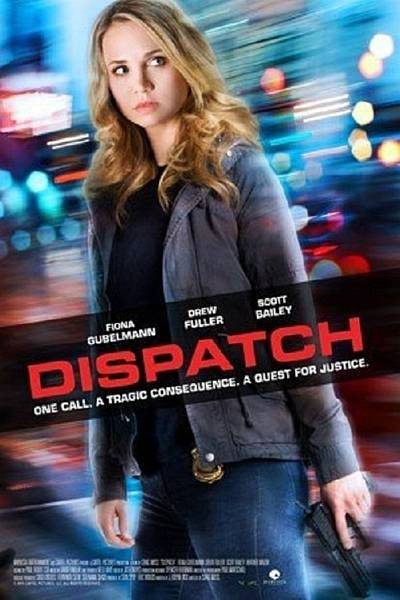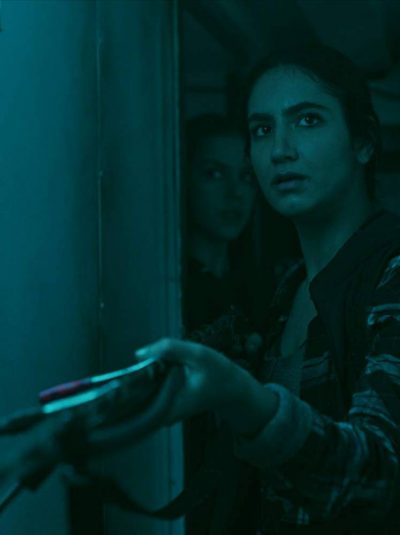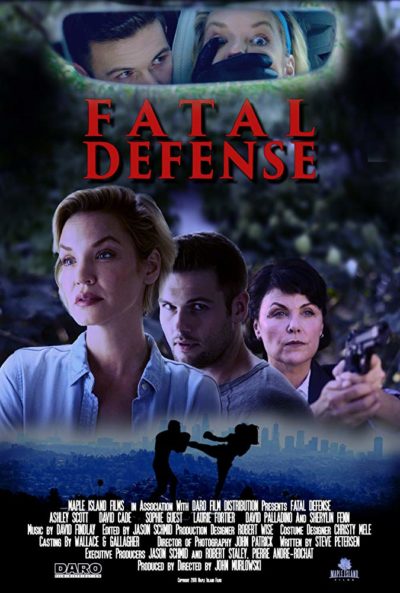★★
“Blows a cylinder”
 This one is slightly unusual among action-heroine films, in that it was both written and directed by women: Kirsten Elms and Kari Skogland respectively. Unfortunately, it’s not exactly an advert for their gender; after a brisk start, it falls apart, and becomes a ridiculously implausible movie, in a completely different genre from where it started. That’s a real pity, because where it started, had a lot more potential than where it ends up. It begins with Sage Rion (Manning), a young but highly-talented thief, taking a bet with her partner, as to who can boost a classic car quickest. She picks a 1966 Dodge Challenger, but inadvertently leaves her ID at the scene of the crime.
This one is slightly unusual among action-heroine films, in that it was both written and directed by women: Kirsten Elms and Kari Skogland respectively. Unfortunately, it’s not exactly an advert for their gender; after a brisk start, it falls apart, and becomes a ridiculously implausible movie, in a completely different genre from where it started. That’s a real pity, because where it started, had a lot more potential than where it ends up. It begins with Sage Rion (Manning), a young but highly-talented thief, taking a bet with her partner, as to who can boost a classic car quickest. She picks a 1966 Dodge Challenger, but inadvertently leaves her ID at the scene of the crime.
Back at her house, she finds a note telling Sage to return the car, or the owner will kill her partner, whom he has kidnapped. She does, even though this puts her in deep water with her employer, for having taken and returned the Dodge in defiance of his orders. And this is where the script goes, not just off the road, but through the crash-barrier and down an embankment into a ravine. For Sage is the recipient of a severed head, and gets framed for the murder of her partner. This forces her on the run, taking shelter in the apartment of hooker friend Brenna (Williams) as the police hunt her. However, rookie cop Fitz (Lombardi) thinks there may be more to it than that. Sage hunts down the owner of the Dodge herself, discovering in the end he is a mad DJ serial killer, who kidnaps and tortures his female victims for the sounds they make, which he incorporates into his mixes.
You may want to read that sentence again. Slowly.
What, pray tell, was wrong with the fresh idea of a young, cocky girl car thief, that it was deemed necessary to apply all this sub-Se7en nonsense to it? It was doing perfectly fine as is. She’d been established as a solid character, with some endearing quirks – for instance, she won’t sleep with any man, unless he first volunteers to cook for her. It would have been interesting enough, to see how she’d handle dealing with her irritable and prone to violence boss. Instead, that angle gets all but discarded when the movie moves on to the “lunatic disk-jockey”. It briefly re-appears, only to be ended in a largely ridiculous method of closure.
The other elements of the film are banal and by the book. You have Fitz and his grizzled partner, who suspects the worst of Sage, for no particular reason (I mean, they could easily figure out the head was severed elsewhere?). And the serial killer is little more than a walking set of cliches, who kidnaps Brenna in order to get to Sage, because… Oh, I dunno. I’d largely lost the will to live by that point in proceedings. So much potential here, only for it to be so completely wasted.
Dir: Kari Skogland
Star: Taryn Manning, Romano Orzari, Michael Lombardi, Genelle Williams








 Turns out that The Asylum are not the only company who makes mockbusters. As its alternate name makes clear, this Lifetime TVM is clearly a knock-off of the title mentioned above, down to the same, basic plot. Two teenage girls begin doing crime, largely for the excitement. A teacher becomes aware of their exploits and decides to blackmail them for his own benefit, by making them escalate their activities. This brings them increasingly under the scrutiny of both authorities and criminal elements, not to mention parental disapproval, eventually leading to a climax where all these aspects cross paths. As my
Turns out that The Asylum are not the only company who makes mockbusters. As its alternate name makes clear, this Lifetime TVM is clearly a knock-off of the title mentioned above, down to the same, basic plot. Two teenage girls begin doing crime, largely for the excitement. A teacher becomes aware of their exploits and decides to blackmail them for his own benefit, by making them escalate their activities. This brings them increasingly under the scrutiny of both authorities and criminal elements, not to mention parental disapproval, eventually leading to a climax where all these aspects cross paths. As my  Christine McCullers (Gubelmann) is a new cop, out on patrol with her father, a long-time veteran of the force. A poor decision involving a robbery suspect leaves Dad dead and Christine crippled. Re-assigned to dispatch, things go from bad to worse, when she gets a call from a kid, which she takes to be some kind of prank. It’s very real, and the caller’s friend ends up murdered as a result. Crucified by social media – not least due to her popping of painkillers to deal with her injury – she’s suspended from duty. Believing the killers are not the victim’s parents as her colleagues think, Christine begins her own investigation to try and achieve redemption through finding the real murderer.
Christine McCullers (Gubelmann) is a new cop, out on patrol with her father, a long-time veteran of the force. A poor decision involving a robbery suspect leaves Dad dead and Christine crippled. Re-assigned to dispatch, things go from bad to worse, when she gets a call from a kid, which she takes to be some kind of prank. It’s very real, and the caller’s friend ends up murdered as a result. Crucified by social media – not least due to her popping of painkillers to deal with her injury – she’s suspended from duty. Believing the killers are not the victim’s parents as her colleagues think, Christine begins her own investigation to try and achieve redemption through finding the real murderer. Architect Beth Davis (Bell) is just about to leave Chicago for a business meeting in Miami, when she hears there has been an explosion at the high-rise apartment building downtown, where she lives with husband Jack (Davis) and son Charlie (Arnold). Rushing back home, she finds the situation increasingly perilous, and the fire department unwilling to enter the unstable structure. Having been the person who designed the building, Beth is able to sneak in, with the aid of a sympathetic fireman, Ray Steele (Holmes, looking like a low-rent Tony Todd) on the outside, and begin the perilous climb to the 55th floor where Jack and Charlie are trapped in the bathroom.
Architect Beth Davis (Bell) is just about to leave Chicago for a business meeting in Miami, when she hears there has been an explosion at the high-rise apartment building downtown, where she lives with husband Jack (Davis) and son Charlie (Arnold). Rushing back home, she finds the situation increasingly perilous, and the fire department unwilling to enter the unstable structure. Having been the person who designed the building, Beth is able to sneak in, with the aid of a sympathetic fireman, Ray Steele (Holmes, looking like a low-rent Tony Todd) on the outside, and begin the perilous climb to the 55th floor where Jack and Charlie are trapped in the bathroom. My heart sank in the first few seconds, when I discovered that this was a SyFy Original Movie. The really poor CGI, of a ship sailing on the ocean, seemed to confirm that I was in for one of their bottom of the barrel productions. In the end, however, this was… just about okay. Incredibly derivative, to be sure, and that’s not its only problem. Yet it still just about sustained my interest. That’s certainly not always the case for SyFy Original Movies, to put it mildly.
My heart sank in the first few seconds, when I discovered that this was a SyFy Original Movie. The really poor CGI, of a ship sailing on the ocean, seemed to confirm that I was in for one of their bottom of the barrel productions. In the end, however, this was… just about okay. Incredibly derivative, to be sure, and that’s not its only problem. Yet it still just about sustained my interest. That’s certainly not always the case for SyFy Original Movies, to put it mildly. Single mother Arden Walsh (Scott) and her daughter Emma (Guest) are traumatized by a home invasion, and at the insistence of mom’s cop sister, Gwen (Fortier), Arden signs on for a self-defense class given by the hunky Logan Chase (Cade). He’s a bit… intense, shall we say. Despite some initial bonding over their ex-marriedness, it’s not too long before Arden discovers his methods leave “unconventional” lying in the dust. Probably about the point where he zip-ties Arden and tosses her in the trunk of his car. At this stage, she decides to forego further classes. Except, Logan is having none of it, and even teams up with the original burglar to put Arden through further “training”.
Single mother Arden Walsh (Scott) and her daughter Emma (Guest) are traumatized by a home invasion, and at the insistence of mom’s cop sister, Gwen (Fortier), Arden signs on for a self-defense class given by the hunky Logan Chase (Cade). He’s a bit… intense, shall we say. Despite some initial bonding over their ex-marriedness, it’s not too long before Arden discovers his methods leave “unconventional” lying in the dust. Probably about the point where he zip-ties Arden and tosses her in the trunk of his car. At this stage, she decides to forego further classes. Except, Logan is having none of it, and even teams up with the original burglar to put Arden through further “training”. This 1986 TV movie was the first film made about an FBI agent while they were still active. Gibson was the fifth black female agent in the bureau’s history: she broke new ground by being the first such assigned to the Fugitive Matters department in the Miami branch, and was also the first to reach a supervisory level within the FBI. That would, however, be well after the story told in this film. It covers how she came to join the FBI, and her first major undercover operation, taking down a gun-running ring operated by ex-NFL star, Adam Prentice (Lawson). However, Gibson starts to find the lines between real-life and undercover work blurring, and begins feeling genuine affection for her target. This doesn’t sit well with her partner, TC (Rollins). If it sounds all very by the numbers… It is.
This 1986 TV movie was the first film made about an FBI agent while they were still active. Gibson was the fifth black female agent in the bureau’s history: she broke new ground by being the first such assigned to the Fugitive Matters department in the Miami branch, and was also the first to reach a supervisory level within the FBI. That would, however, be well after the story told in this film. It covers how she came to join the FBI, and her first major undercover operation, taking down a gun-running ring operated by ex-NFL star, Adam Prentice (Lawson). However, Gibson starts to find the lines between real-life and undercover work blurring, and begins feeling genuine affection for her target. This doesn’t sit well with her partner, TC (Rollins). If it sounds all very by the numbers… It is.